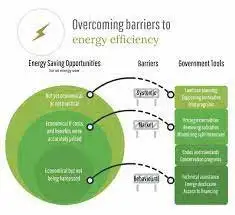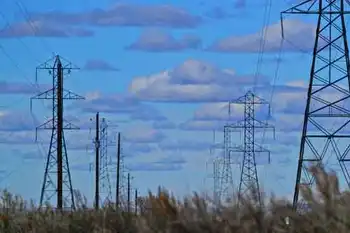California - Declaring that "deregulation in any form simply will not work," Orange County Sen. Joe Dunn said Tuesday that today he will unveil legislation to re-regulate California's electricity market.
Under Dunn's legislation, utilities would be forced to serve their electricity customers at the lowest reasonable cost, wholesale prices would be tied to production costs, and industrial customers couldn't go directly to energy wholesalers. Dunn's SB888 would formally scrap California's seven-year experiment with deregulation, in which competitive market forces boosted average wholesale prices tenfold during 2001. "I think this will serve as the death knell of deregulation," said Dunn, D-Santa Ana, who headed the Senate's two-year investigation into energy market practices. The bill stems from that investigation. Energy producers were critical. It would "undermine the stability and certainty necessary to repair California's energy market," said Jan Smutny-Jones of the Independent Energy Producers, a trade association and lobbying group. Dunn's bill: Requires the price of wholesale electricity -- the amount that utilities pay to purchase power for their customers -- be set by the cost of actually producing it, not by the prices that can be fetched in the open market. If such a provision were law now, the price would be $30 to $40 per megawatt hour, slightly below current costs. In early 2001, however, prices reached an average of $355 per megawatt hour. States that utilities' top priority is to serve their customers, and that the utilities' rates must be based on the cost of providing that service. Under the bill that deregulated energy, AB1890, the goal was to open markets to competition. Would phase out "direct access," by which large companies and manufacturers bypass utilities and buy low-cost power directly from generators. The state and the traditional utilities lost revenue when companies bought from these other generators. As much as 16 percent of California's electricity load was purchased through direct access in 1999-2000, but that figure dropped to 2 percent during the energy crisis. It has rebounded to 12 percent. Dunn's bill lets existing contracts run until they expire but bars new ones. The bill does not rebate to utilities the costs they incurred in shifting to deregulation, but it allows those costs to be built into rate requests to the state's Public Utilities Commission. Nor does it cover any losses suffered by companies that bought utilities' power plants at top dollar in hopes of realizing large profits during years of deregulation. "They did quite nicely, anyway," said PUC member Loretta Lynch. "These are the same people we're suing for manipulating the market." FERC Judge Rejects Avista Settlement of Calif Issues A Federal Energy Regulatory Commission judge on Wednesday said he could not accept the agency's proposed settlement with Avista Corp. because of a new investigative report detailing manipulation of the California power market. Curtis Wagner, the agency's chief administrative law judge, said he could not certify, or approve, the settlement as written. In an order, Wagner said he would give Spokane, Washington-based Avista and agency trial staff until May 15 to rewrite the settlement to deal with allegations that Avista acted as a middleman for Enron Corp. and its Portland General Electric utility to inflate prices of wholesale electricity during the western power crisis that began in mid-2000. "I think there are too many outstanding questions to certify the settlement. I think I would be derelict in my duty if I did," Wagner said during a hearing. He cited a FERC staff investigative report issued on March 26 that identified Avista as one of 37 companies and municipal utilities that may have skirted trading rules during the power crisis. The report urged FERC commissioners to issue "show cause" orders to the companies demanding that they justify their behavior or repay illegal profits. Avista has denied any wrongdoing. The firm said in a statement that it supported delaying certification of the settlement "so that there is no cloud hanging over a final resolution of the case." Wagner said he will decide on May 20 whether to accept the modified settlement, or to hold a new hearing to address allegations raised in the FERC staff report. Wagner also refused to drop an order that keeps evidence submitted by Avista secret. During a hearing before Wagner, lawyers for the city of Tacoma, Washington, claimed that alleged overcharges by Avista cost city ratepayers an extra $45 million. "They just want to string it out and see if they can shake the money tree," said Gary Bachman, a lawyer for Avista. Lawyers for FERC also urged the judge to approve the settlement so it could go before the agency's three commissioners for final approval. "We're not backing off the settlement. We haven't seen any indications that would alter our conclusions," FERC attorney Edith Gilmore told the judge. Proposed settlements reached between agency lawyers and companies are rarely rejected by FERC judges. The proposed settlement, reached by FERC lawyers with Avista, required the utility to continue recording conversations of its energy traders, to develop more documentation to resolve accounting disputes with counterparties, and to maintain a training program on FERC's code of conduct for traders. Gilmore said her staff examined far more Avista trading data and documents than did FERC investigators who prepared the report issued in late March about all energy companies involved in electricity and natural gas trading in California. "The final staff report didn't offer conclusions. It raised suspicions," Gilmore said. FERC lawyers reached an agreement last December to drop allegations against Avista, saying they found no evidence of illegal actions by the company. However, Wagner said a 418-page report on the California energy crisis issued by a separate group of FERC investigators indicated that Avista was involved in unfair trading schemes. The report said Avista was involved in the resale of ancillary services with a gain of about $11.8 million and that it received "counter-flow revenues" of nearly $100,000 from scheduling changes, according to Wagner. Wagner said he generally opposed settling allegations of wrongdoing. "If you rob a bank, how could a prosecutor settle with you that you didn't rob the bank of you did?" he asked. California, which has accused Enron and other power suppliers of over-charging the state by billions of dollars, said in February that the case against Avista should not be halted. The state complained that FERC lawyers failed to investigate the case fully and failed to review all of the Avista tape-recorded trades for 2000-01.
Dunn's SB888 would formally scrap California's seven-year experiment with deregulation, in which competitive market forces boosted average wholesale prices tenfold during 2001.
"I think this will serve as the death knell of deregulation," said Dunn, D-Santa Ana, who headed the Senate's two-year investigation into energy market practices.
The bill stems from that investigation.
Energy producers were critical.
It would "undermine the stability and certainty necessary to repair California's energy market," said Jan Smutny-Jones of the Independent Energy Producers, a trade association and lobbying group.
Dunn's bill: Requires the price of wholesale electricity -- the amount that utilities pay to purchase power for their customers -- be set by the cost of actually producing it, not by the prices that can be fetched in the open market. If such a provision were law now, the price would be $30 to $40 per megawatt hour, slightly below current costs. In early 2001, however, prices reached an average of $355 per megawatt hour.
States that utilities' top priority is to serve their customers, and that the utilities' rates must be based on the cost of providing that service.
Under the bill that deregulated energy, AB1890, the goal was to open markets to competition.
Would phase out "direct access," by which large companies and manufacturers bypass utilities and buy low-cost power directly from generators. The state and the traditional utilities lost revenue when companies bought from these other generators.
As much as 16 percent of California's electricity load was purchased through direct access in 1999-2000, but that figure dropped to 2 percent during the energy crisis. It has rebounded to 12 percent.
Dunn's bill lets existing contracts run until they expire but bars new ones.
The bill does not rebate to utilities the costs they incurred in shifting to deregulation, but it allows those costs to be built into rate requests to the state's Public Utilities Commission. Nor does it cover any losses suffered by companies that bought utilities' power plants at top dollar in hopes of realizing large profits during years of deregulation.
"They did quite nicely, anyway," said PUC member Loretta Lynch. "These are the same people we're suing for manipulating the market."
A Federal Energy Regulatory Commission judge on Wednesday said he could not accept the agency's proposed settlement with Avista Corp. because of a new investigative report detailing manipulation of the California power market. Curtis Wagner, the agency's chief administrative law judge, said he could not certify, or approve, the settlement as written.
In an order, Wagner said he would give Spokane, Washington-based Avista and agency trial staff until May 15 to rewrite the settlement to deal with allegations that Avista acted as a middleman for Enron Corp. and its Portland General Electric utility to inflate prices of wholesale electricity during the western power crisis that began in mid-2000.
"I think there are too many outstanding questions to certify the settlement. I think I would be derelict in my duty if I did," Wagner said during a hearing.
He cited a FERC staff investigative report issued on March 26 that identified Avista as one of 37 companies and municipal utilities that may have skirted trading rules during the power crisis. The report urged FERC commissioners to issue "show cause" orders to the companies demanding that they justify their behavior or repay illegal profits.
Avista has denied any wrongdoing. The firm said in a statement that it supported delaying certification of the settlement "so that there is no cloud hanging over a final resolution of the case."
Wagner said he will decide on May 20 whether to accept the modified settlement, or to hold a new hearing to address allegations raised in the FERC staff report.
Wagner also refused to drop an order that keeps evidence submitted by Avista secret.
During a hearing before Wagner, lawyers for the city of Tacoma, Washington, claimed that alleged overcharges by Avista cost city ratepayers an extra $45 million.
"They just want to string it out and see if they can shake the money tree," said Gary Bachman, a lawyer for Avista.
Lawyers for FERC also urged the judge to approve the settlement so it could go before the agency's three commissioners for final approval.
"We're not backing off the settlement. We haven't seen any indications that would alter our conclusions," FERC attorney Edith Gilmore told the judge.
Proposed settlements reached between agency lawyers and companies are rarely rejected by FERC judges.
The proposed settlement, reached by FERC lawyers with Avista, required the utility to continue recording conversations of its energy traders, to develop more documentation to resolve accounting disputes with counterparties, and to maintain a training program on FERC's code of conduct for traders.
Gilmore said her staff examined far more Avista trading data and documents than did FERC investigators who prepared the report issued in late March about all energy companies involved in electricity and natural gas trading in California.
"The final staff report didn't offer conclusions. It raised suspicions," Gilmore said.
FERC lawyers reached an agreement last December to drop allegations against Avista, saying they found no evidence of illegal actions by the company.
However, Wagner said a 418-page report on the California energy crisis issued by a separate group of FERC investigators indicated that Avista was involved in unfair trading schemes.
The report said Avista was involved in the resale of ancillary services with a gain of about $11.8 million and that it received "counter-flow revenues" of nearly $100,000 from scheduling changes, according to Wagner.
Wagner said he generally opposed settling allegations of wrongdoing. "If you rob a bank, how could a prosecutor settle with you that you didn't rob the bank of you did?" he asked.
California, which has accused Enron and other power suppliers of over-charging the state by billions of dollars, said in February that the case against Avista should not be halted. The state complained that FERC lawyers failed to investigate the case fully and failed to review all of the Avista tape-recorded trades for 2000-01.
Related News

Summerland solar power project will provide electricity
summerside solar - A proposed solar energy project, to be constructed on municipally-owned property on Cartwright Mountain, will allow Summerland Power to produce some of its own electricity.
On Monday evening, municipal staff described the Solar+Storage project.
The project will include around 3,200 solar panels and storage batteries, giving Summerland Power the ability to generate 1,200 megawatts of electrical power.
This is the amount of energy used by 100 homes over the course of a year.
The solar panels have an estimated life expectancy of 35 years, while the batteries have a life expectancy of 20 years.
“It’s a really big step for a small…




